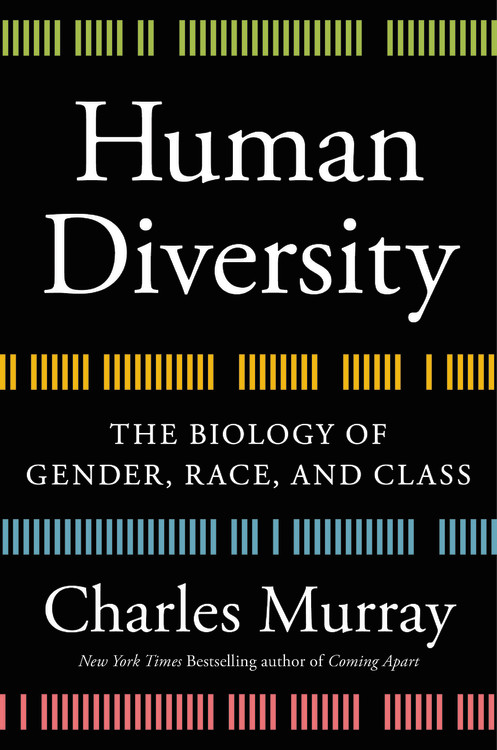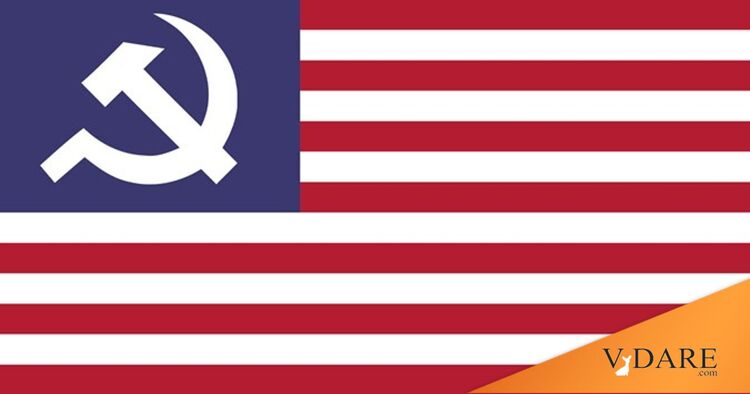Face fungus. In the mysterious way these things come round, it's been a mustache month.
 There was this weird story about Harry Harris, our Ambassador to South Korea. He has a mustache. He was born in Japan to a Japanese mother and American father. That's got the South Koreans stirred up.
There was this weird story about Harry Harris, our Ambassador to South Korea. He has a mustache. He was born in Japan to a Japanese mother and American father. That's got the South Koreans stirred up.
The gist of the criticism is that with the mustache, Harris resembles the reviled Japanese leaders who ruled the Korean Peninsula with an iron fist during the Japanese occupation.
Some of Japan's most prominent wartime leaders—like Hideki Tojo, the Prime Minister who was later executed by a postwar tribunal, and Emperor Hirohito—had mustaches.
O-kay. Given that we have committed our troops—28,000 of them last time I looked—to defending South Korea against an adversary with one-half the South's population and one-fiftieth its GDP, I think we should tell the Sorks where to stick their criticism.
And then of course, John Bolton was in the news. In my January 31st Radio Derb I did my best to extend some charity towards Bolton, but the temptation to make fun of his extraordinary face fungus proved irresistible:
Still, I'm sure a case can be made for him. No doubt he's a good husband and father, kind to small animals. Heck, I bet he's a jolly companion down at the pub over pints of ale, with a fund of witty anecdotes to charm and amuse you as you try not to watch him suck the ale-froth from his mustache. [At 4m58s here.]
 And then, in an idle hour I was browsing in Bryan Ward-Perkins 2005 book The Fall of Rome, which sets out to debunk the revisionist "late antiquity" thesis of, amongst others, Peter Brown.
And then, in an idle hour I was browsing in Bryan Ward-Perkins 2005 book The Fall of Rome, which sets out to debunk the revisionist "late antiquity" thesis of, amongst others, Peter Brown.
Brown et al. have argued that the end of the Roman Empire was no big deal and the years ad 250-800 in Europe—that's "late antiquity"—were buzzing with cultural development and vibrant intellectual ferment. Au contraire, argues Ward-Perkins, the fall of Rome really was a horrible catastrophe and the Dark Ages really were pretty damn dark.
Well, along the way there Ward-Perkins gives us a fascinating three-page digression on mustaches. The Romans, he says, just didn't have them.
There is no representation that I know of, from any century, that shows a Roman, or indeed a Greek, with a moustache (unless it is accompanied by a beard); and there is not even a word in the Latin language for "moustache."
Really? I checked with my Cassell's Latin Dictionary.
moustache, render by the phrase labrum superius non radere, not to shave the upper lip (Caes.)
There were mustaches around in the period under question, but they were a mark of German-ness. Theodoric the Ostrogoth had a mustache: Ward-Perkins shows him mustached on a gold medallion of the period. His successor Theodahad likewise. It was a Germanic thing, an ethnic marker.
(I have used the American spelling there except when copying from British authors. The pronunciations are different, too: "MUS-tash" in America, "mus-TOSH" in the Old Country.)
Name that virus. One side effect of the news about corona virus has been on sales of Corona beer. Apparently large numbers of people think the virus is caught from drinking the beer. Prophesy what you like about Artificial Intelligence; I doubt it will ever be a match for Natural Stupidity.
At least one wag has suggested that there's a business opportunity here for virologists:
Whoever names the next virus should blackmail valuable brands into not naming [it] after them and use funds to finance a cure.
For a Brit of my vintage, Corona is neither a beer nor a virus. It is, and forever will be, a brand of pop (=soda) sold in Britain way back around 1950, sealed with a complicated wire-and-plug arrangement. I can still taste their dandelion and burdock ‹sigh›.
Scruton. Conservative intellectual Sir Roger Scruton left us this month. I posted a very brief (because I knew him only very slightly) tribute at VDARE.com.
Of other tributes, the most luminous I have read came from Jonathan Price in First Things. Price did know Sir Roger well:
Sir Roger was my teacher, mentor, and friend. For a decade, beginning in 2010 and ending only when he became ill, I attended his gatherings of young philosophers: twice-termly symposia in his rooms in Oxford or his apartment in London. One of us would present a paper, and then Roger and the others would criticize it, assisted by bottles of vintage French wine. He called us his "Refugees": a collection of misfits in modern philosophy departments; lovers of culture, place, history, beauty, and time; lost in late modernity. [Remembering Sir Roger by Jonathan Price; First Things, January 17th 2020.]
"Misfits"? I should say. How on earth did they evade the attentions of the Thought Police? Well, Scruton himself didn't.
I have only one other personal recollection of Sir Roger, and it is as inconsequential as it could possibly be.
During a brief spell of prosperity in mid-1980s London I patronized a good West End tailor. Among the items he made for me was a sports jacket in a rather loud tweed.
("Sports" in this context means shooting sports. A loud jacket reduced your chances of being shot in error, like the unfortunate beater in that James Mason movie.)
On one of the occasions I was in the same room with Sir Roger Scruton, he was wearing a sports jacket identical with mine. Did we share the same London tailor? I thought it would be impertinent to ask. Too late now.
Hasidim having fun. I still don't have the Jew Thing, so I guess I'll have to go on putting up with emails from people sneering at me for my cowardly refusal to Name The Jew.
The Jew Thing and issues arising from it—the quantification of the Holocaust, the influence of Jewish and Israeli lobbies on our politics—are fascinating to (a) Jews and (b) antisemites. To those of us who are neither thing, they are not very interesting. The Holocaust was a terrible thing that happened in history, which is full of terrible things. AIPAC and their friends are a nuisance; but given our constitutional protections for lobbying, I don't see what can be done about it.
 My attitude, if I'm obliged to have one, is fundamentally Darwinian. As I have written: If it's really true that 97 percent of the U.S. population is dancing to the tune of the other three percent, the more fool they. People who tell me this are just practicing another kind of victimology: "Poor us! We have no agency! …" The hell with that. Stop dancing.
My attitude, if I'm obliged to have one, is fundamentally Darwinian. As I have written: If it's really true that 97 percent of the U.S. population is dancing to the tune of the other three percent, the more fool they. People who tell me this are just practicing another kind of victimology: "Poor us! We have no agency! …" The hell with that. Stop dancing.
Occasionally, though, my attention dwells for an hour or so on some aspect of Jewishness. So it was early this month when the Mrs and I watched that 1992 Melanie Griffith movie A Stranger Among Us, in which a New York City cop investigates a murder among the Hasidim. Yes, yes, I know: The Hasidim are no more representative of Jews at large than the Amish are of Swiss-Germans, and a lot of their fellow Jews don't like them. They are an aspect of Jewishness, OK?
We came away from the movie with the impression that being Hasidic is a lot of fun. Dancing, singing, fellowship … hey. It's only a movie, of course, and not one well-regarded by the critics, but there's food for thought there.
I dimly remember a straight-journalism article about New York Hasidim by some social scientist, in one of the magazines (New Yorker?) thirty-odd years ago, telling us inter alia that Hasidic women enjoy unusually high levels of sexual satisfaction. Watching A Stranger Among Us, it's not hard to believe.
Bolt-hole news. I've been speculating for years — more than ten years—that Uruguay might be just the place as a bolt-hole to flee to if things go pear-shaped in the Northern Hemisphere.
Perhaps I should have kept quiet. Uruguay had a presidential election in November. The winner, who takes office March 1st, was Luis Lacalle Pou, who is tagged as "center-right" in reports I've read. My knowledge of Uruguayan politics is neither deep nor wide, although I did have a soft spot for old lefty José Mujica, a sort of honest version of Bernie Sanders, who was president from 2010 to 2015.
All through his public career Mujica has lived very frugally. Elected president, he would not move to the presidential palace, preferring to stay on the small farm he runs with his wife, who he seems to have lived with for ever. As president, he continued driving his beaten-up 1987 Volkswagen beetle, and donated most of his salary to left-wing charities. [Radio Derb, 8/24/2018.]
This new chap doesn't seem to be in the Mujica league for personal character, but he has decided the country needs more people … of the right kind. He wants to loosen up residency requirements so that persons who buy $500,000-worth of real estate and live in the country for 90 days will get permanent residence.
I predict an incoming flood of Chinese. But hey, at least Lacalle Pou isn't so godawful barking stupid as to propose mass settlement of Somalis.
That msn.com story I linked to, by the way, fortifies my bolt-hole argument.
Uruguay has a lot to sell. Nestled between Argentina and Brazil, it's one of South America's wealthiest nations. The coast is lined with stunning beaches, the countryside dotted with picturesque farms and vineyards.
(For those who like trivia questions: I'm pretty sure that of all the nations on Earth, Uruguay has the southernmost northernmost point. If you say this, someone will try to counter with New Zealand; but New Zealand owns some remote islands that are further north than northernmost Uruguay. Quick now: Which nation has the northernmost southernmost point?)
The sex recession. With the turn of the decade, people are coming forth with predictions. Psychologist James Thompson's over at Unz Review are the most minimalist I have so far seen:
- Very few people will be using flying taxis, other than those already using conventional flying taxis.
- Very few people will be being driven by autonomous vehicles.
- Most cars will be powered by internal combustion engines.
- Batteries will be only a little better than they are at the moment.
- People all over the world will be richer and healthier.
- Population growth will stabilize, except in Africa.
In particular zones of interest, geneticists Razib Khan and Spencer Wells offer Top 10 human genetics & evolution predictions for the 2020s. Number Ten snagged my attention.
There will be "dating apps" or "match-making" apps that use DNA.
 Perhaps that will do something to turn around the "Sex Recession" I've been reading about for at least a year, since The Atlantic coined that phrase in a December 2018 article.
Perhaps that will do something to turn around the "Sex Recession" I've been reading about for at least a year, since The Atlantic coined that phrase in a December 2018 article.
Here was another piece about this, in the New York Post.
According to the latest data by the General Social Survey, men between the ages of 18 and 29 are having less sex than ever; the number of abstinent men has nearly tripled in the last decade, from 10 percent in 2008 to 28 percent last year. [Why today's young men are terrified of sex, by Eric Spitznagel; New York Post, January 11 2020.]
The paradox here is the one I nailed (sorry …) on Radio Derb five years ago:
Human beings today are much more sexually attractive than they used to be, thanks to much improved standards of health, hygiene, and grooming; but this seems not to have led to any actual increase in coitus.
A hundred years ago there was no Brazilian waxing, most people got enough hot water to bathe in only once a week or less, skin diseases were rampant, and there was no proper detergent to get clothes clean: yet not the fitchew nor the soiléd horse went to't with a more riotous appetite than our hairy, dirty, smelly, pimply forebears. [Fifty shades of paradox; Radio Derb, February 14th 2015.]
Perhaps we could ask the Hasidim about it.
Power of the word. In the matter of Human Biodiversity (HBD), the event of the month was the January 28th publication of Charles Murray's new book Human Diversity: The Biology of Gender, Race, and Class. My review is here, Steve Sailer's is here.
 Content aside, Human Diversity offers an interesting take on some of our current denominative neuroses.
Content aside, Human Diversity offers an interesting take on some of our current denominative neuroses.
I winced at that "gender" in the title. What's wrong with "sex"? Sure, the social-justice language police don't like it, but that's all the more reason to favor it.
Murray trots along amiably for a few pages using "gender" in the approved fashion. Then, on page 19, he turns Derbish.
From now on I will usually refer to "sex differences" instead of "gender differences." "Gender" was popularized in the 1960s to designate socially constructed differences. But it turns out that there is no clear division between biological and socially constructed differences and no point in trying to pretend otherwise—which is what the widespread use of "gender" amounts to. In the technical literature, many scholars who write on these topics have resumed the use of "sex" to apply to all kinds of differences between males and females. So do I.
Yess-ss-ss! Murray doesn't hold the line as tightly as I'd like: The word "gender" subsequently occurs a hundred-odd times in his book. A high proportion of those occurrences, though, are in quotes from other writers, or the titles of referenced articles, or the names of things like the UN's Gender Development Index. Murray's heart is definitely in the right place.
He let me down on "race," though.
The combination of historical and scientific reasons makes a compelling case that the word race has outlived its usefulness when discussing genetics. That's why I adopt contemporary practice in the technical literature, which uses ancestral population or simply population instead of race or ethnicity, throughout the rest of Part II. [Page 135.]
That follows 200 words of argument making the case for dropping "race." It's not a bad case, but there is a real loss to the language here. "Population"? My town has a population, but we are not a race. You've just collapsed two distinct meanings into one word. "Ancestral population"? Trading in one syllable for seven? That's the kind of thing that bureaucrats and crooked lawyers like to do to make it harder for us to think.
Sorry, but I am going to go on using "race" to mean what I have always supposed it meant: a localized, mostly-inbred old population.
Where taboo words survive. While I'm grumbling about word fashions, I may as well add this one.
My January 31st Radio Derb included an item [at 32m33s here] about SOAS, the School of Oriental and African Studies in London, of which I nurse fond memories from forty years ago. The place has, of course, gone to the dogs, like a great deal of academia in Britain.
A listener wondered why they are allowed to go on using the word "oriental" in their name. He had been told by some member of the Voluntary Auxiliary Thought Police that "oriental" is an offensive word.
Yes, I've been told that, too. The taboo goes way back. When I published a novel about Chinese people back in 1996, one reviewer scolded me for using it.
For the names of longstanding institutions, there seems to be some exception to the taboo rules allowed. We still have the United Negro College Fund and the National Association for the Advancement of Colored People, although both just identify themselves by their initials wherever possible. Who today would dare to say "Negro" or "colored" in any context other than those organization names?
The naming of parts. The things that come up in idle conversation! Sitting around with two gents of my own generation the other day, the following question was posed: "How did your father refer to his penis?" My own sire—born 1899 in Lancashire, England—called his "my old man."
There seems to be a universal tendency to identify our most intimate parts with the senior demographic, I suppose because both the parts and the demographic tend to be … wrinkly. Followers of the philosopher Schopenhauer know that the Latin word anus means "old woman."
There are puzzles within puzzles, though. I have a Chinese friend who, as a teenager during the Cultural Revolution, was sent down to the countryside. He once told me that a male Chinese peasant refers to his organ of generation as lao er, "old number two."
Me: "If that's number two, what's number one?"
He: "I dunno. His head, I guess."
I guess so.
TV is for geezers. Browsing idly on the internet I saw someone saying: "Americans under thirty don't watch TV." I didn't think about it at the time and didn't bookmark it, but it lodged in my head somehow and kept coming back.
At last I thought I'd check it out. We have a 24-year-old living at home with us, so I tackled him. Does he watch TV?
He: Nah, not really.
Me: Come on. I've seen you watching TV.
He: Eh. When I've got nothing to do and there's a movie on, I'll watch the movie. That's about it.
Me: Sitcoms? Current affairs? Late night comics? News programs? Sports?
He: Nah.
All right, that's what quantitative social scientists call an N=1 study. I have no grounds for claiming that Junior is a typical American twentysomething.
He's smart and well-socialized though, with four years in the military, now two and a half further years studying business at a respectable university, getting decent grades. (Thank you, GI Bill!) I don't see him as a behavioral outlier in any way. He spends more time than I'd like playing computer games, but he doesn't let it get in the way of his studies, and spends plenty of his free time out of the house with friends.
Asking around among other parents, I believe it's true. We're losing TV.
This is one of those social changes that sneak up on you. I've been taking TV for granted all these years. Now it's slipping away. I only just found out.
Muh Latin. I was throwing some Latin around back there. Last month I regretted not having paid more attention to Latin in school. How much attention did I pay, actually? Quantify, quantify.
My school reports show me having the following rankings in a class of 33 or 34 boys for the twelve semesters of Latin I did, three semesters a year for four years, last semester not ranked:
3, 1, 1; 2, 3, 1; 1, 20, 1; 19, 6, ?
Hard to know what to make of that. Why was I absent for Spring term 1959, when I plunged to 20th in my class? I have no recollection.
Fall of that year, when I dropped to 19, looks like an attitude problem. Ah, adolescence! As we Latinists say: Intemperans adolescentia effetum corpus tradit senectuti.
[Note: My solution to the second part of the December brainteaser, as originally posted, was wrong. There's a correction at the end of this link. Sorry sorry.]
 On a whim, I asked Santa to bring me the American Mathematical Society page-a-day calendar for 2020. Santa accordingly did so. Now each day I can turn up some mildly-interesting math factlet.
On a whim, I asked Santa to bring me the American Mathematical Society page-a-day calendar for 2020. Santa accordingly did so. Now each day I can turn up some mildly-interesting math factlet.
So far, I must say, the thing is rather lame. It is of course woke as all get-out. The first actual mathematician featured, on the page for January 15th, is Sofia Kovalevskaya. Although undoubtedly a very smart lady, Kovalevskaya was not a first-rank mathematician. In Charles Murray's Human Accomplishment she is ranked 113th. But hey, she had a vagina! (Did she, as mathematical folklore suggests, grant access thither to Karl Weierstrass, a much more consequential mathematician? We shall never know; Weierstrass burned all her letters to him after she died.)
For January 13th we get a poem, or what passes for a poem nowadays—no rhyme or meter, of course. It is actually Sarah Glaz's "13 January 2009," which you can read for yourself about two-thirds of the way down this American Scientist web page. Sheesh, guys, if it's mathematical verse you're wanting, I am always available.
And then, January 16th: the hyperbolic soccer ball. Meh.
I wouldn't say this topic is totally lame. I'll allow that it might get a smart highschooler thinking about serious mathematical concepts like negative curvature of a two-dimensional surface. It's lame-ish, though, especially to those of us who are soccer-phobic.
Here's the idea. Imagine a soccer ball, or just google "soccer ball" to remind you what the thing looks like. Ignoring the curvature due to inflation, it consists of twelve regular pentagons (black) and twenty regular hexagons (white) put together in a pleasantly symmetrical way. Mathematically speaking, it's a truncated icosahedron.
Here's how you could make one. Start with one black regular pentagon and five white regular hexagons having the same edge length. Attach the hexagons to the pentagons, edge to edge. You get a nice floral figure. There is daylight between adjacent edges of adjacent hexagons, though. To get rid of the daylight, you could fold up the hexagons until the edges meet, making a shallow bowl.
If you now attach more pentagons and more hexagons in an appropriate pattern, the extended bowl closes in altogether on itself at last. You end up with a finite solid figure—a soccer ball!
For a hyperbolic soccer ball, instead of starting with a regular black pentagon, you start with a regular black heptagon (seven edges). Take seven white regular hexagons having the same edge length and attach them to the heptagon, edge to edge, just as before.
This time there is no daylight between adjacent edges of adjacent hexagons. In fact there is overlap.
This is not good. Folding up the hexagons as before doesn't help; the overlap just gets worse.
If your model is made from some substance that bends—paper is the usual thing—you can none the less join adjacent edges of adjacent hexagons by warping the polygons. This strikes me as cheating. This in fact is where I start muttering "lame … lame …" under my breath.
You do get an object of sorts, though; and some people, although obviously not me, think it's cool.
And then, as before, you can add more heptagons and hexagons in a mathematically suitable way, until …
Until what? Does this thing ever close up into a finite solid object? Intuition tells me that it doesn't, although I've never had the patience to think the matter through rigorously.
If I'm right, the hyperbolic soccer ball is just an uneven surface stretching away to infinity in all directions. Try playing soccer with that!










